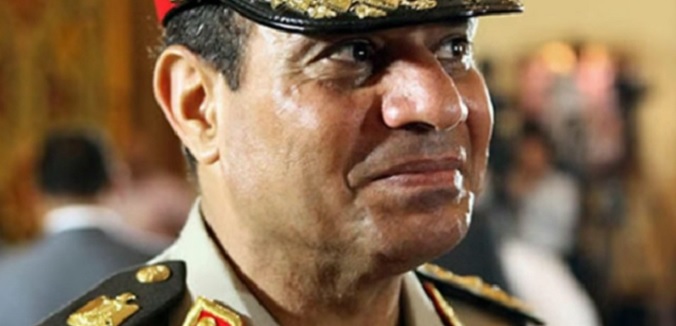Analysis published this week by the Britain Israel Communications and Research Centre (BICOM) conveyed a variety of indicators – ranging from public data about Israeli-Egyptian energy agreements to recent statements by Abdel-Fattah El-Sisi – converging on the conclusion that Cairo is making a concentrated effort to boost and insulate bilateral ties with the Jewish state. The write-up specifically focused on recent statements by Sisi, who is widely expected to breeze to the presidency in upcoming elections:
In a televised interview, Egypt’s former-Defence Minister Abdel Fattah al-Sisi, who is expected to be elected as the country’s president later this month, said that he would respect Egypt’s peace treaty with Israel.
During the interview with state television’s Ibrahim Eissa and Lamis El-Hadidi, al-Sisi said that “I respect all international accords, including the treaty with Israel.” The two countries signed a peace agreement in 1979 and their common border has remained largely quiet ever since. However, al-Sisi indicated that the cordial Egypt-Israel relations could become closer under his rule, if Israel were to reach a peace agreement with the Palestinians. He said in the interview, “Let us see a Palestinian nation with Jerusalem as the capital. That would make us all happy … There is an opportunity to give the Palestinians hope, and that hope will open a lot of doors in the region.”
Meanwhile Amr Mussa – a top liberal politician and a notable Sisi ally – called on the Palestinian Hamas faction to recognize Israel in order to boost efforts to establish a viable Palestinian state:
However, “I believe that Hamas should declare its acceptance of the Arab initiative of 2002, which is the map of normalization and recognition of the state of Israel together with the establishing of the Palestinian state and the withdrawal of the occupied territory,” he insisted.
Agence France-Presse (AFP) read the remarks against the backdrop of a recent unity agreement announced between Hamas and the rival Fatah faction.
The announcement had been blasted by some analysts for providing Hamas with a lifeline, after almost a year of systematic Egyptian campaigns to economically and diplomatically isolate the terror group.
AFP noted that “the deputy leader of Hamas, Moussa Abu Marzuq, insisted earlier this week that despite the unity deal his group would never recognize Israel,” a stance which puts the Palestinians in tension with almost a decade of international demands and with black-letter American law.
[Photo: WorldBreakingNews / YouTube]




